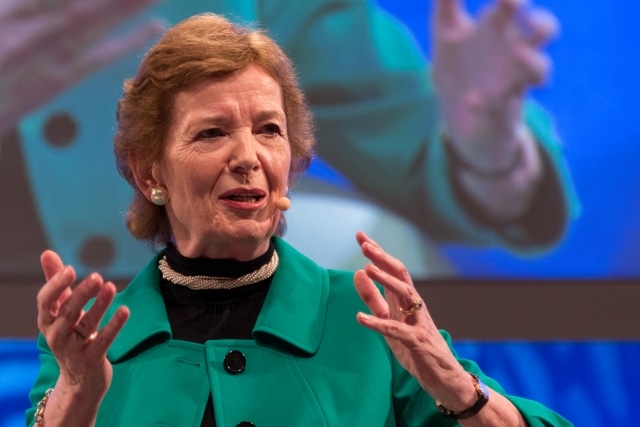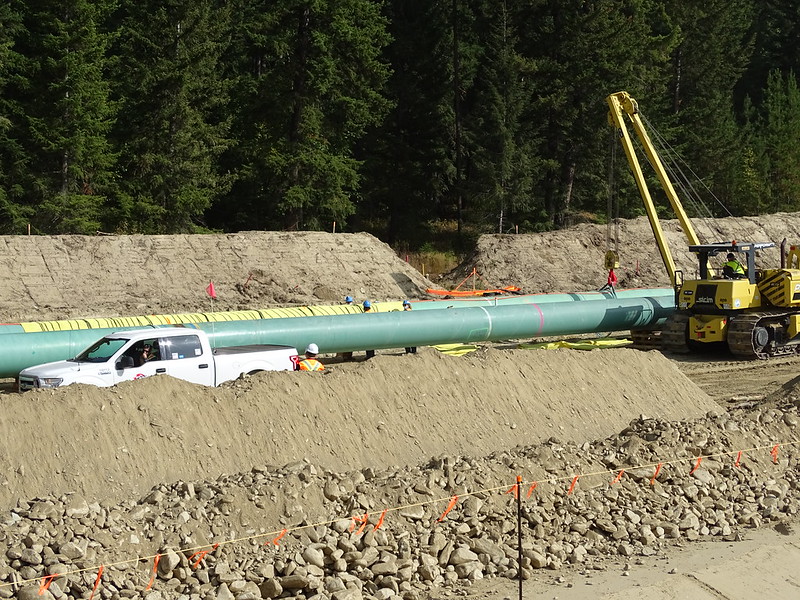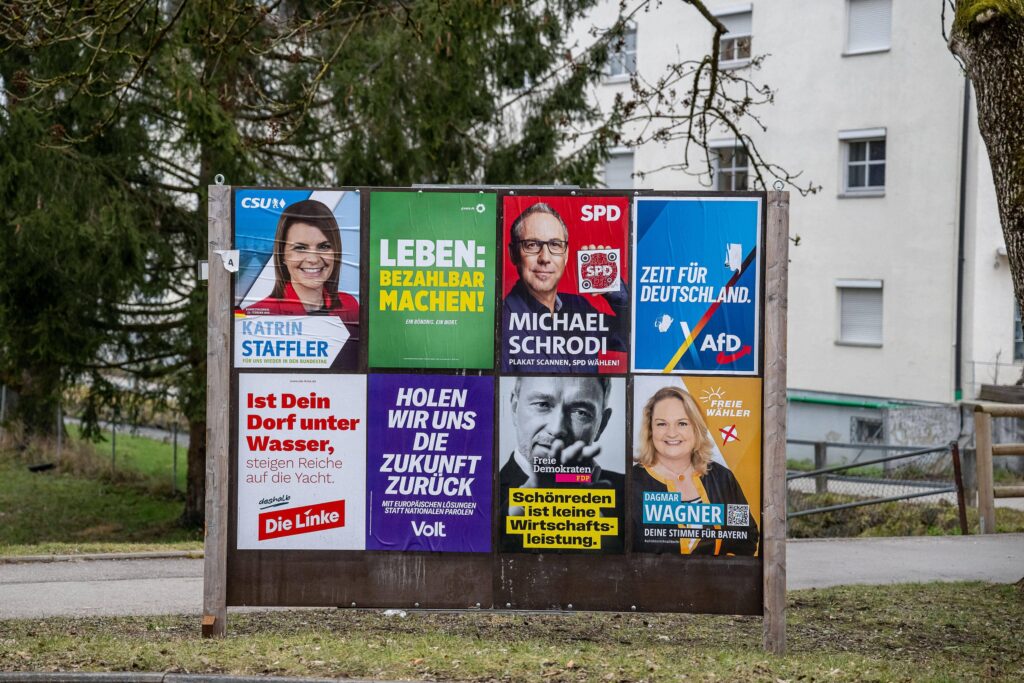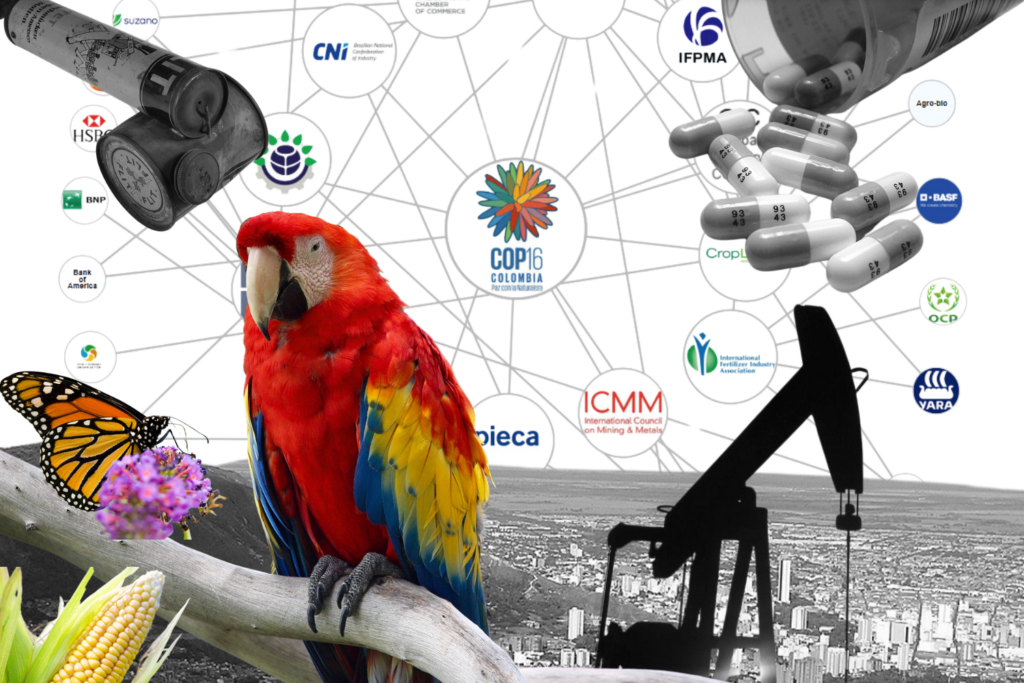Mary Robinson, the United Nations envoy on climate change, warns that the transition away from fossil fuels must happen immediately to achieve climate justice.
I am struck by the fact that Eleanor Roosevelt, and her commission, who drew up the Declaration of Human Rights – a declaration adopted by every country in the world – never imagined that human-induced climate change might force whole countries to go out of existence.
We’re not on course for a safe world for millions of people and, even more seriously, for their children and grandchildren. We urgently need to change course and catalyse a transformation in the way we develop, the way we live, the way we do business.
Our current system is flawed and unsustainable and if it continues the world is on course for catastrophic climate change and vast inequality.
But let’s turn this on its head and make it positive, because we now know far better ways of doing things that could shape a more inclusive, equitable, sustainable and safe future for all. The transformative change needed [in response to] the impacts of climate is our opportunity to work for a much better and safer world.
Climate Justice
I’d like to talk to you about climate change from my perspective, which is one of justice, human rights and fairness, for people and their right to development are at the heart of the discussion.
I do so with humility because when I served as UN high commissioner of human rights in 1997 to 2002 climate change wasn’t front of my mind. I don’t recall making any major speech on climate change or making any link between climate change and human rights.
It was not the science or the graphs or the pictures of polar bears and icecaps that brought me to climate change. It was the impacts it was having on people’s lives and people’s rights; this is why we focus on climate justice.
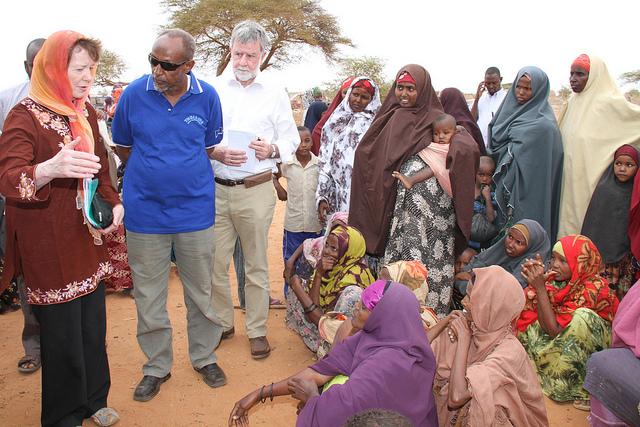
Robinson in Somalia, 2011. Photo: Trocaire via Flickr
Climate justice is motivated by the injustice of the impacts of climate change on the rights and opportunities of the people who are least responsible for causing the problem. And it’s committed to making sure the costs and benefits of the transition away from fossil fuels are shared equitably.
Catalysing Change
2015 is the year to catalyse this transformation away from business as usual to a more inclusive, sustainable, and just alternative… Seeds that were sewn in Rio de Janeiro in 1992 will bloom this year and then continue to grow in the years after 2020, 2050 and beyond.
I love the idea that so many students have [attended this lecture] because it is your world, you have to help us to make sure that we mobilise as much as possible and get the word out that 2015 might be one of the most important years since 1945.
1945 gave us the Charter of the United Nations and Bretton Woods institutions and the Marshall Plan. This year we have Financing for Development, the sustainable development goals and the climate change agreement that are of that order of importance for future generations.
Key to maximising the change we can effect this year is realising that the 2015 agendas are mutually reinforcing. Unfortunately, we’ve tended to work on climate change and development in silos with different communities of experts and separate policy agendas.
The latest science makes it clear that the world needs to reach zero carbon emissions… We [at the Mary Robinson Foundation – Climate Justice argue] that we need to reach zero carbon emissions by 2050. This is ambitious and a significant departure from the way we do business currently. But it’s the only way we believe to stay within the remaining carbon budget.
It may seem contradictory but, to be fair, all countries must be able to participate in the transition away from fossil fuels together and at the same time. If not, we will exceed the carbon budget that consigned countries without the means to participate in the transition to renewable energy to a future based on expensive, obsolete and polluting fossil fuels.
So, creating the conditions – legal, regulatory, financial and political – for all countries to be part of the solution is key. This is where climate finance can play a role in catalysing the transition, which in turn needs to shift the trillions of dollars of investment worldwide to power the transformation.
Leadership and Ambition
I worry about references to managing expectations in Paris because there’s a danger that this will lead to too low of a level of ambition and point us on a different course. We need leadership and ambitious action by all countries.
Developed countries have grown wealthy based on fossil fuels. Their leadership is based on peaking, if they haven’t done so already, and then rapidly reducing their emissions by making the transition to sustainable development. They also have an obligation to help developing countries to adapt to climate impacts and make the transition to zero carbon development.
To date, these obligations have by and large not been met and, as a result, have eroded trust and quashed ambition. Hence, a commitment to lead by developed countries is critical to success this year.
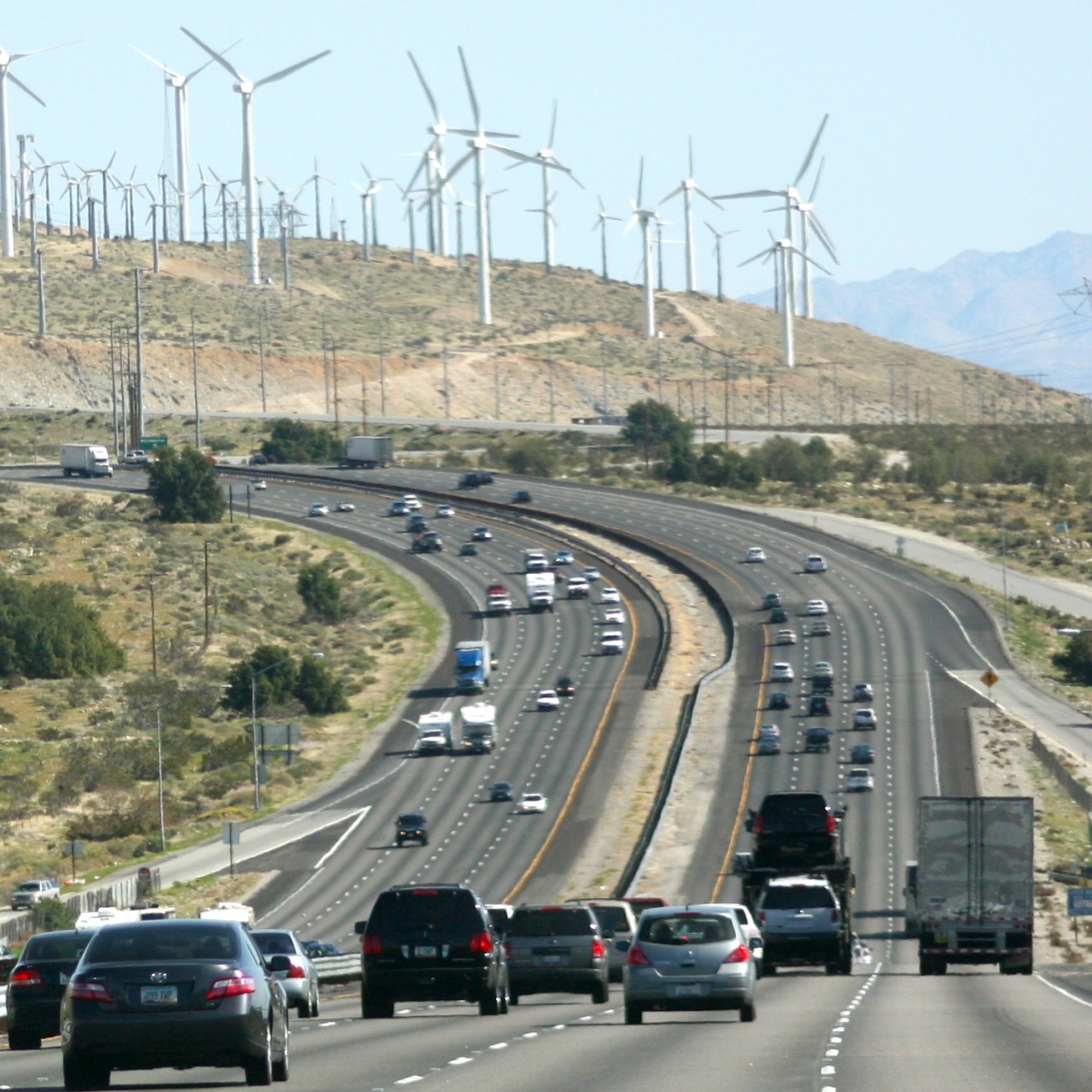
We must take a new path away from fossil fuels argues Robinson. Photo: Kevin Dooley via Flickr
The majority of developing countries are in a different situation, and so would need a different leadership. They’re at an earlier stage in their development and, as a result, many have low levels of emissions. They will need to meet their sustainable development goals without using fossil fuels.
In other words, they will have to develop using a different model than that which made the industrialised countries wealthy.
We have to remember that in our experience, no country has developed without fossil fuels to date, so what is key is providing the technology, finance, skills and systems to create an alternative way of developing.
Collective Self-Interest
As I’ve emphasised, it’s in our collective self-interest to support this transition and this new model of development as, without it, we exceed the carbon budget and will be forced to accept the consequences of a 4-degrees-or-worse world. And that’s a world that will be far more unfair and unjust than the one we live in now.
So what, I wonder, stops us from making this transition, from seizing this moment in 2015?
It may seem idealistic but, in fact, this is what science informs us we must do. We have to stay true to the science, that’s also the climate justice way. It will be hard, but it is doable and affordable.
Why, I wonder, are we so wedded to business as usual? And why are we so scared of change? Is business as usual so successful that the risks of moving away from it are too great to take?
I don’t think so; business as usual has resulted in dangerous levels of pollution, caused climate change and biodiversity loss, and has failed to eradicate poverty and inequality. The current system is deeply dependent on, and influenced by, fossil fuels.
A New Direction
Carbon will ultimately constrain development for the least developed and most vulnerable nations of the world as climate impacts lead to more poverty and greater inequality. In a transition to zero carbon and zero poverty on the other hand, the potential benefits outweigh the risks… in terms of energy security, better health, decreased mortality, job creation and greater resilience.
There is less to fear from this path than a blind commitment to the one that we are on.
And let’s just be fully aware that this new direction is new for all countries. No country has achieved sustainable development, no country has met its development objectives, without using fossil fuels and all countries are learning how to adapt to climate change.
This means there is great potential for cooperation and for countries to learn from each other and to support each other. Some developing countries are more used to adapting to climate so they may have lessons for richer countries that haven’t been buffeted to the same extent until now.
I think we can create an international order for all to recognise their rights [as declared by the Universal Declaration of Human Rights] if we grasp the opportunities that 2015 presents.
Now is not the moment to manage expectations and get cold feet. 2015 is the moment to catalyse transformation and achieve a social order the Universal Declaration aspires to. Now is the time for climate justice.
As Victor Hugo suggested: “greater than the tread of mighty armies is an idea whose time has come.” And I believe that is climate justice.
This text is a condensed and edited version of a speech given by Mary Robinson, the United Nations envoy on climate change on 16 April 2015 at the Grantham Institute on Climate Change and the Environment at Imperial College London.
Subscribe to our newsletter
Stay up to date with DeSmog news and alerts


